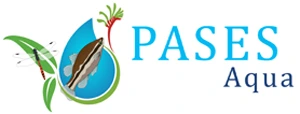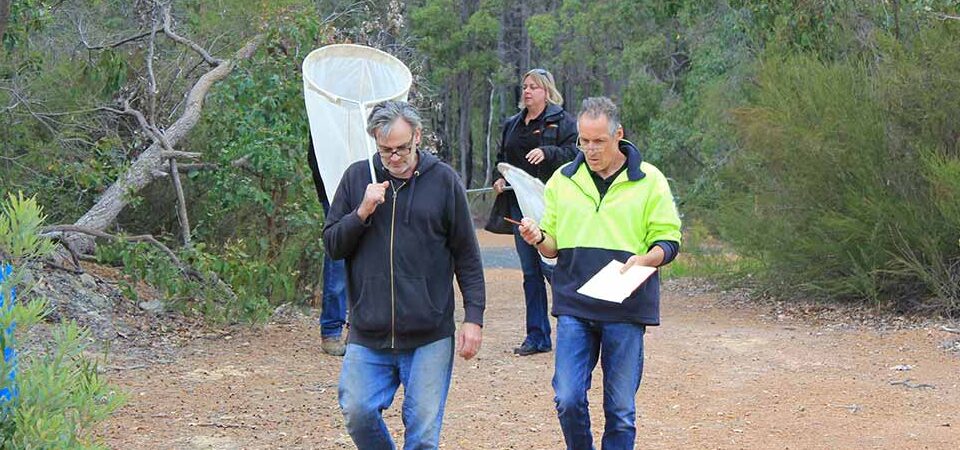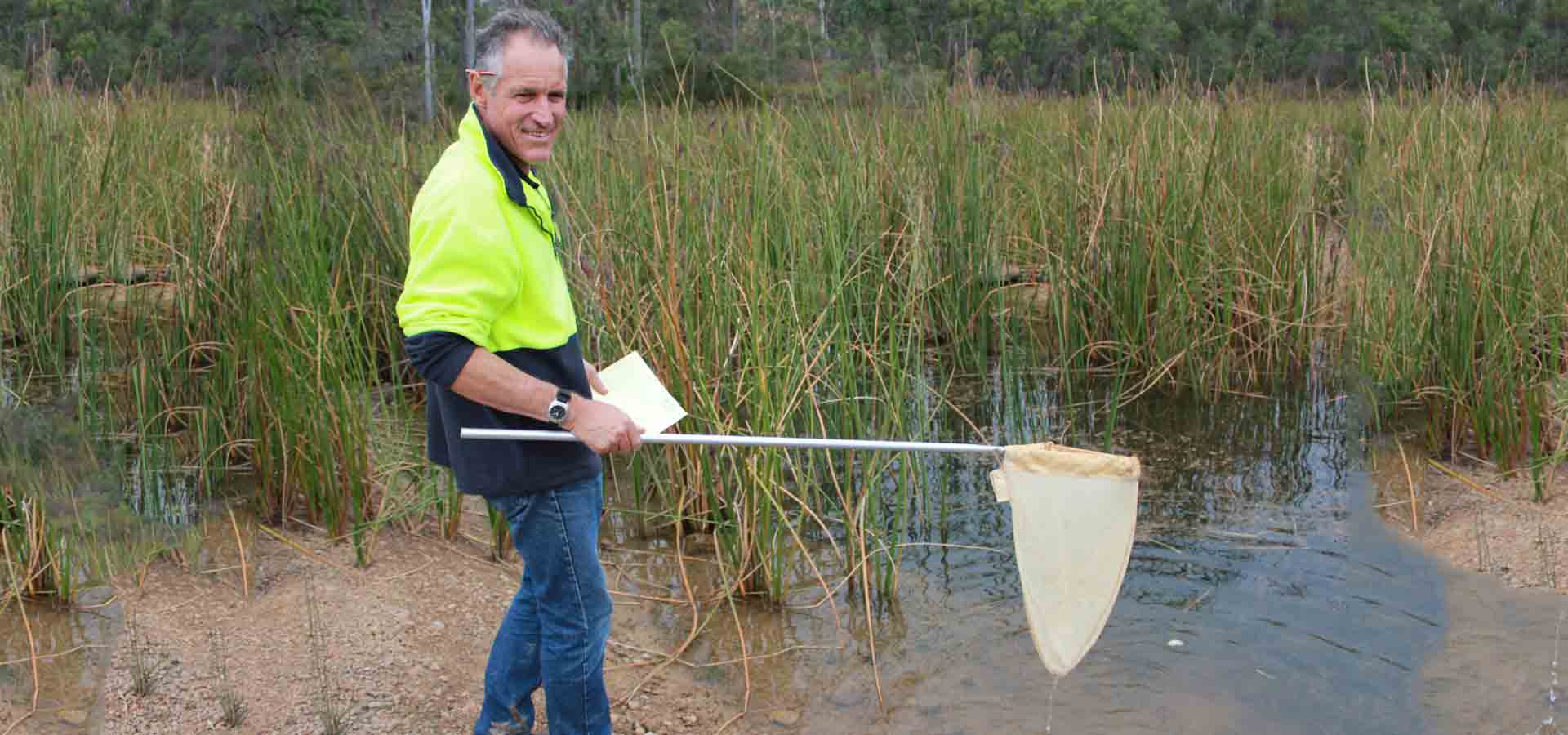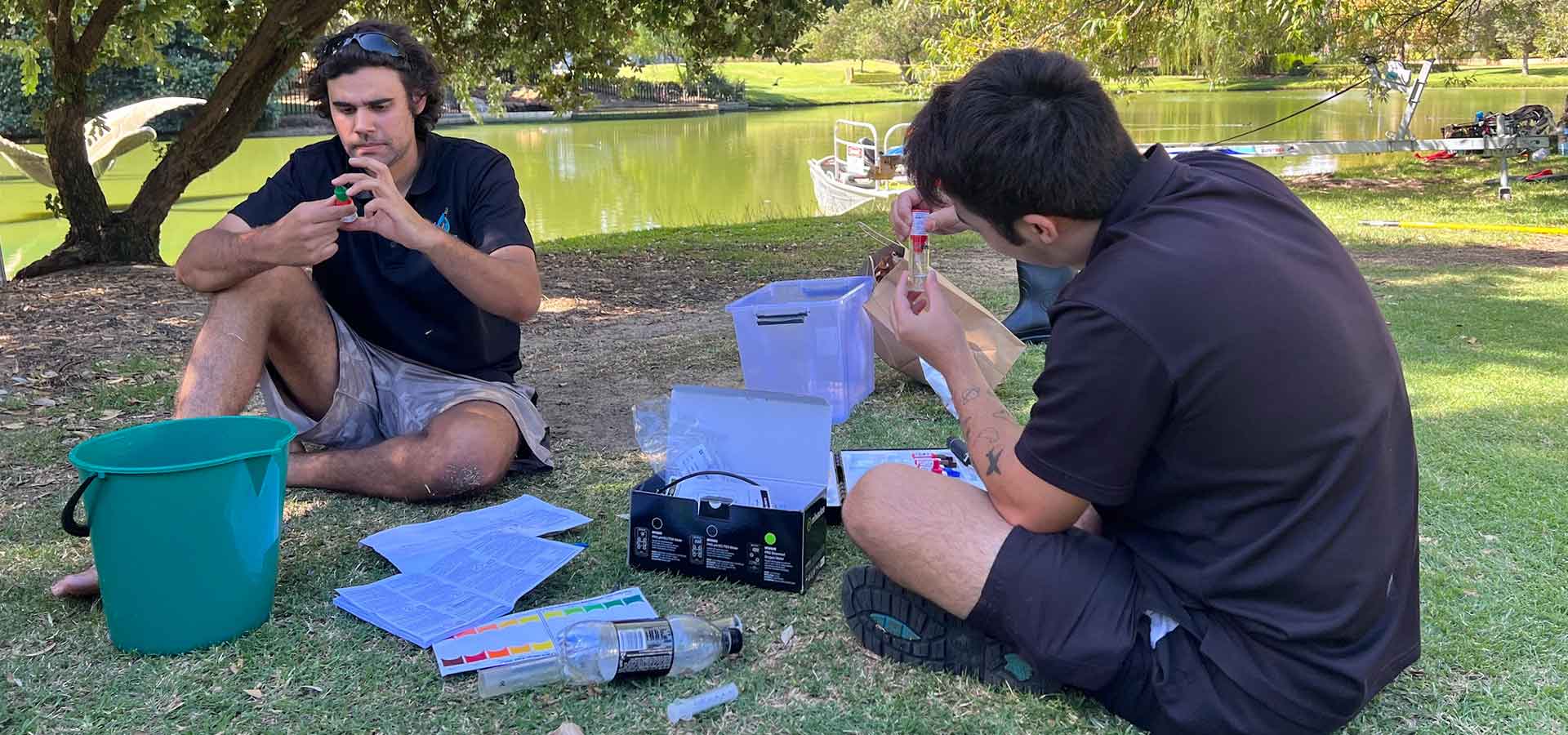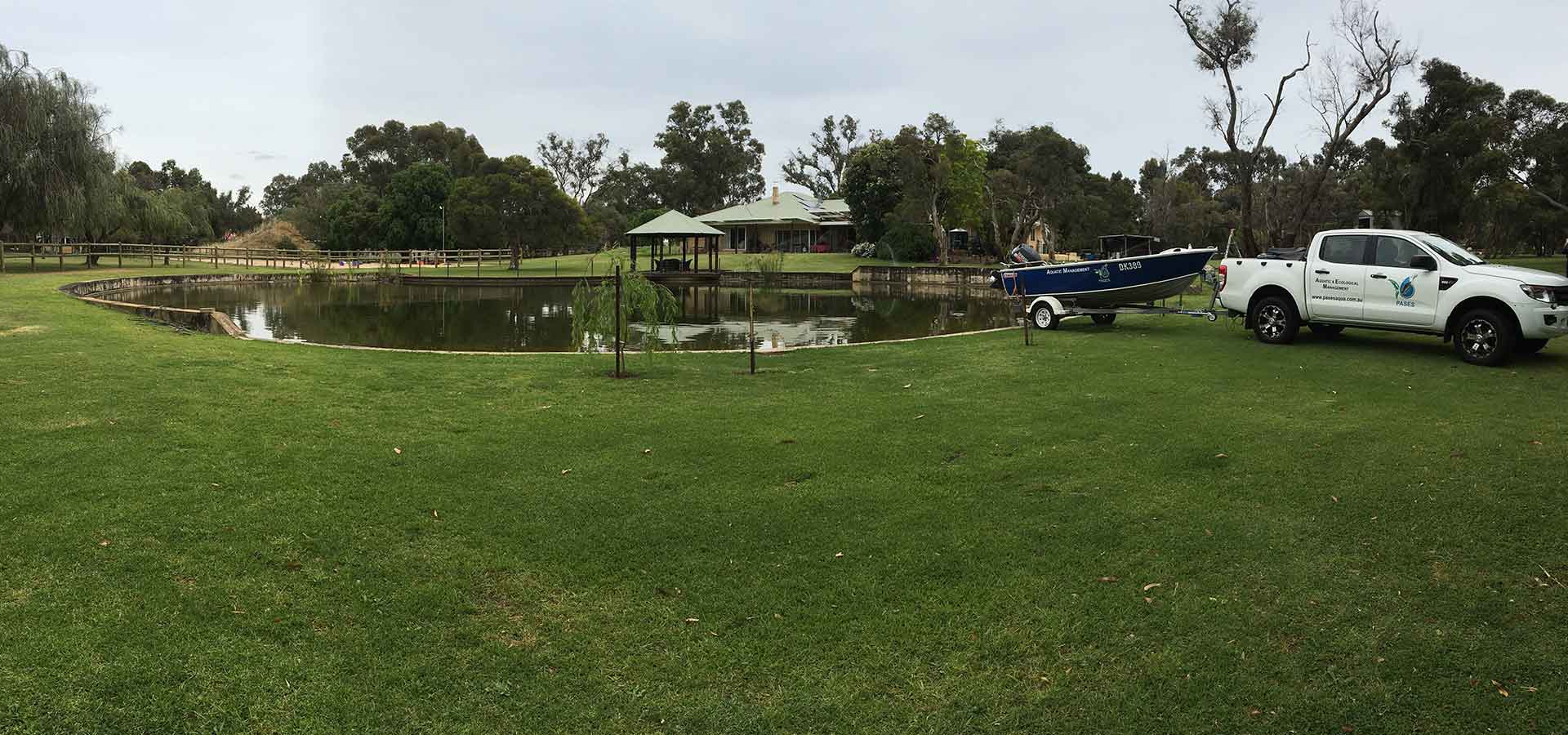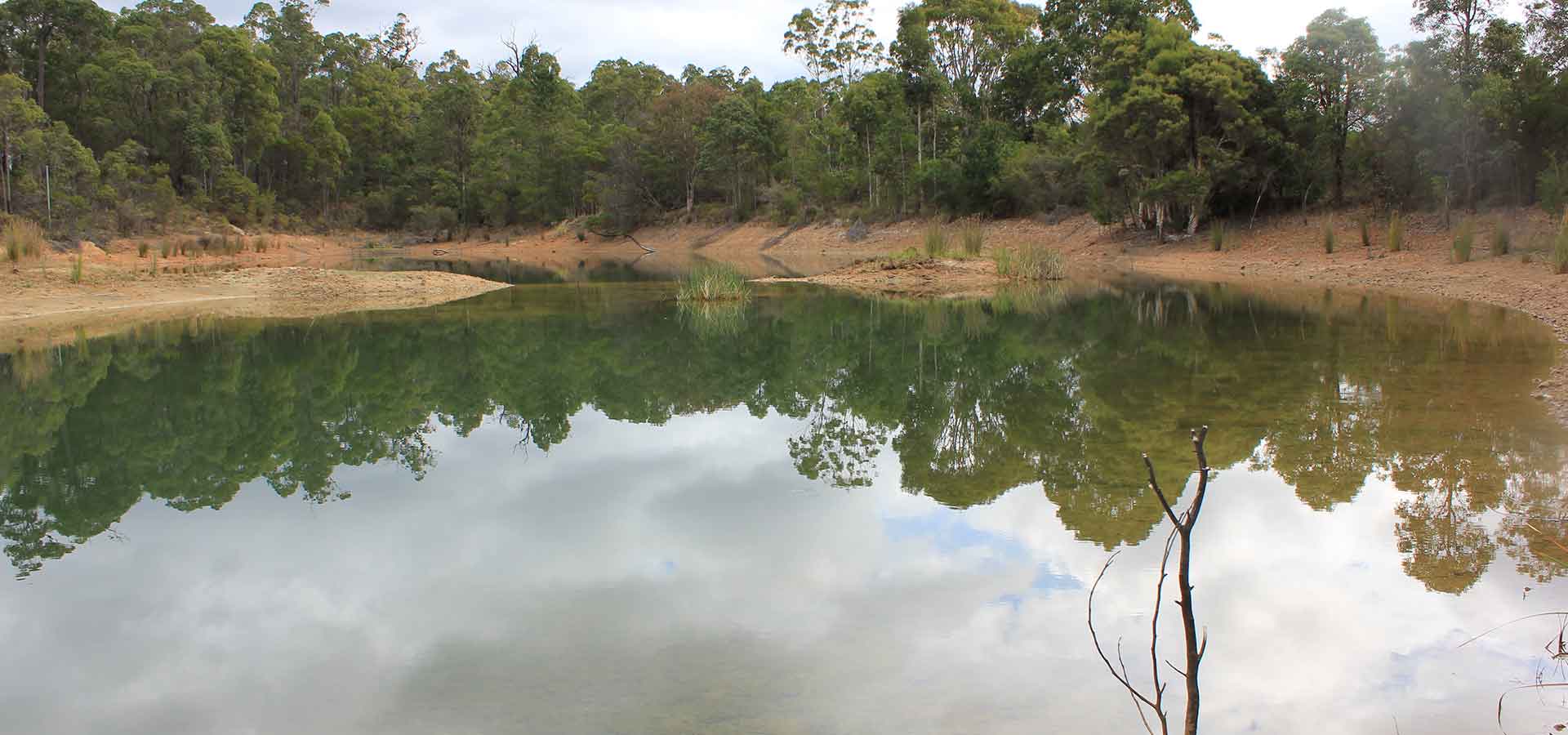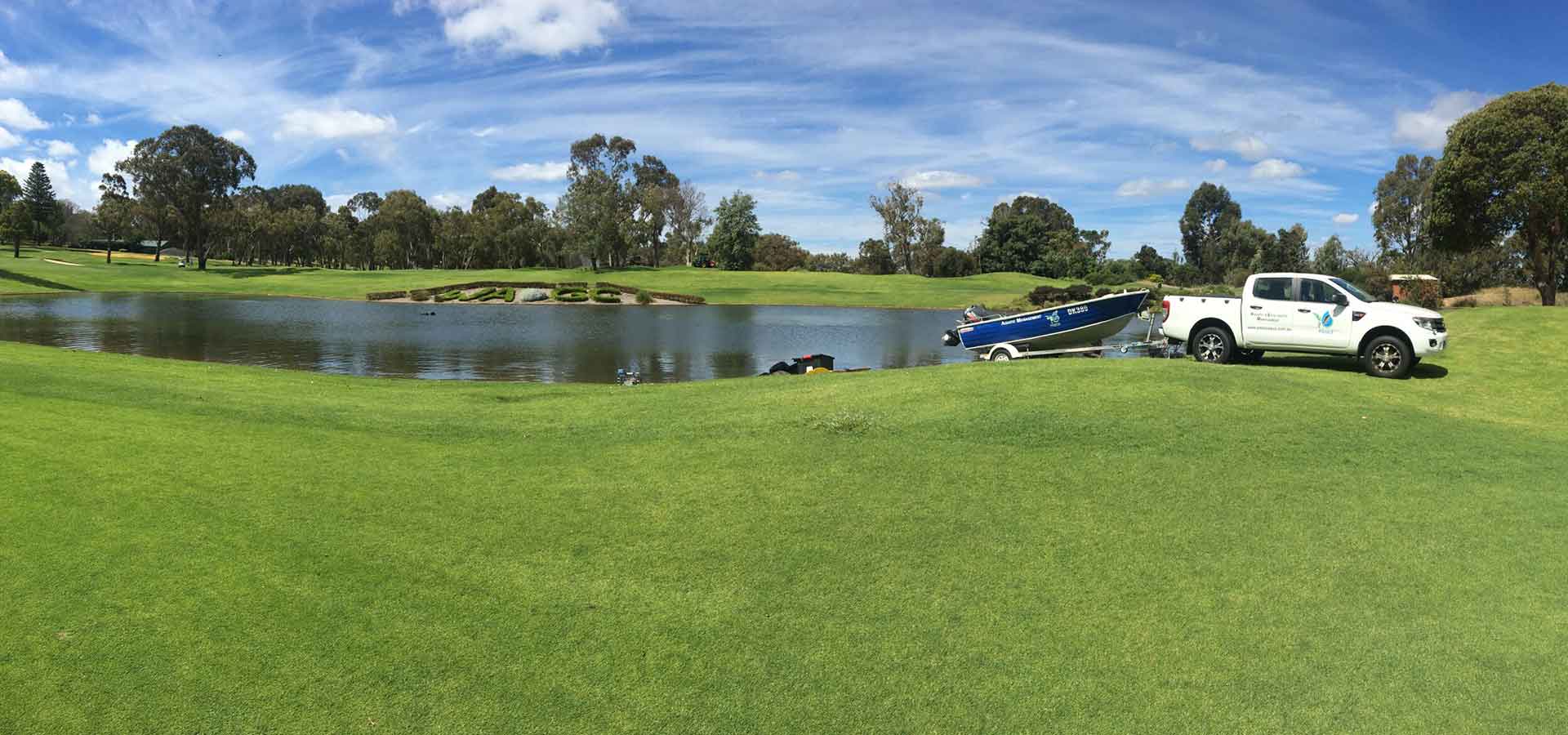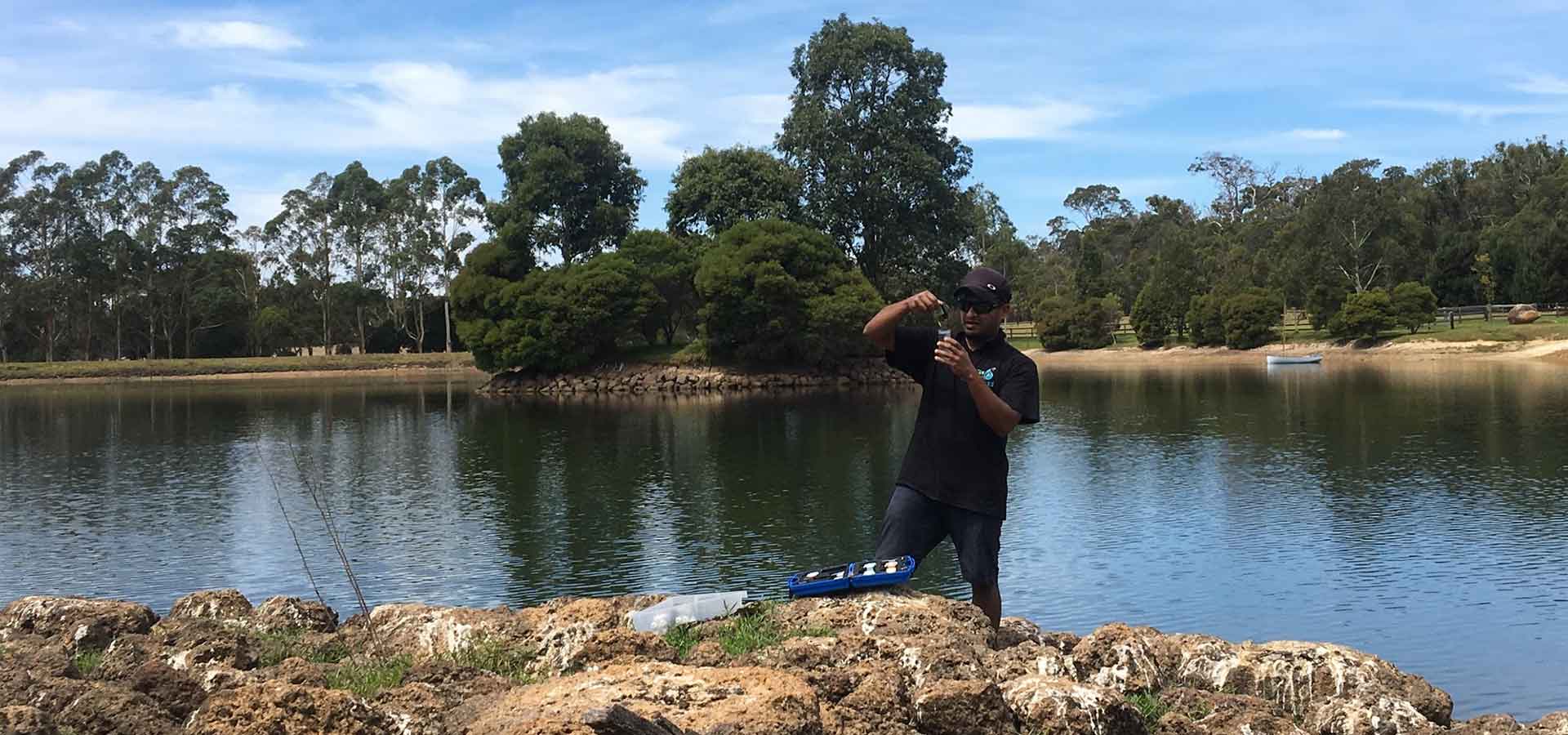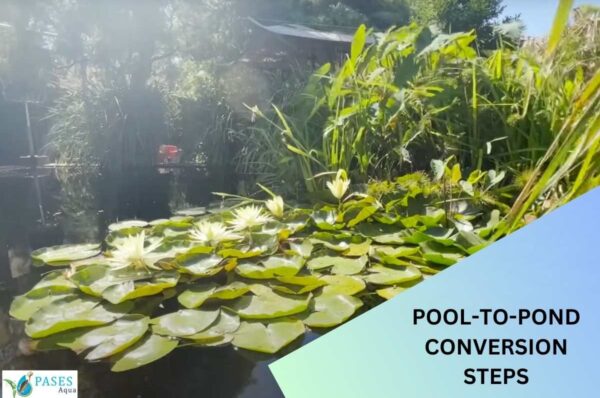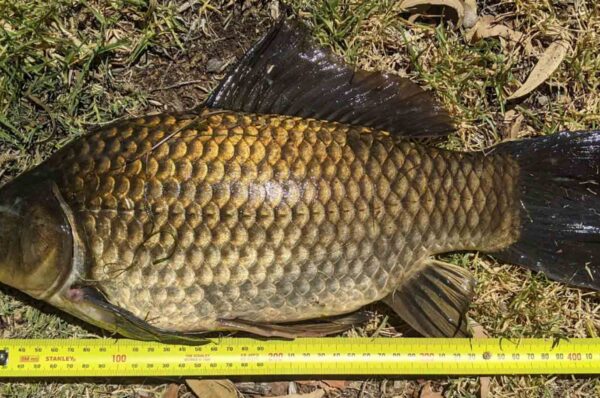Our wetland scientists monitor the health of large water bodies to ensure they remain free from environmental issues such as eutrophication, poor water quality, algal outbreaks, weed dominance, mosquito and midge booms, fish kills and invasive species dominance.
Monitoring wetland health is critical to ensure the ‘ecological character’ of the water body remains intact. If change is occurring, we need to understand the cause and then develop a management strategy to restore the wetland to its pre-disturbed condition. Monitoring requires systematic collection of data repeated over time, and PASES Aqua uses a range of indicators to monitor wetland health (modified from National Land and Water Audit):
| INDICATORS | MEASURES |
|---|---|
| CONDITION | |
| Catchment disturbance | Land use category |
| Infrastructure | |
| Land cover change | |
| Natural disturbances – fire, drought, floods | |
| PHYSICAL FORM AND PROCESSES | |
| Area of wetland | % change in wetland area |
| Loss in area of original wetland | |
| Wetland topography | % of wetland where activities have resulted in change in bathymetry |
| Degree of sedimentation/erosion | |
| % change in bathymetry | |
| Soil Disturbance | % and severity of wetland soil disturbance |
| Substrate disturbance | |
| HYDROLOGICAL DISTURBANCE | |
| Local physical modifications to hydrology inflow, drainage and extraction | Severity of activities that change the water regime |
| Impact of man made structures | |
| Changes to water regime | |
| WATER AND SOIL QUALITY | |
| Turbidity regime | % change in Nephelometric Turbidity Units (NTU) |
| Salinity regime | |
| Change in pH, ammonia, nitrite, nitrate, KH, GH, Phosphates, Dissolved oxygen, Ca,,Mg etc, Substrate, composition/soil properties | Salinity,soil pH, soil depth, soil colour, soil texture |
| FRINGING ZONE | |
| Change in fringing zone (measured by change in vegetation condition) | % of fringing vegetation that is intact |
| % of natural and exotic vegetation | |
| BIOTA | |
| Change in soft bodied aquatic macrophytes | % cover of soft bodied aquatic macrophytes |
| Change in hard bodied aquatic macrophytes | % cover of hard bodied aquatic macrophytes |
| Change in invertebrate diversity and community composition | Species richness and community composition, abundance of mosquitoe and midge larvae |
| Change in wetland dependent vertebrates, presence, breeding and abundance | Turtles, Birds, Snakes, Amphibians |
| Change in introduced species presence and abundance | % change in feral fish sp richness and numbers |
| % change in weed sp richness and numbers | |
| Change in algae species and abundance | % change in phytoplankton species –species richness and densities (cell counts) |
| % change in filamentous species – species richness and % cover |
|
There are times when resources are not available to measure all indicators. In this situation, PASES Aqua will assess the most important indicators to assess and maintain the integrity of the wetland.
Frequently asked questions
Monitoring would always be a critical step to determine the condition of the lakes, followed by active management when required. If ecosystem health is not monitored for extended periods, it could quickly become degraded and irreversible, with a significant investment required to get it back to its original condition. Hence, regular monitoring is not only cost efficient, but would create significant benefits to the local community and the lakes aquatic inhabitants.
The greater the native species diversity (richness and abundance) of macroinvertebrates, fish and frogs – the more likely it is a healthy waterbody. The dominance of pest species can indicate a degraded waterbody and which would require active management
Typical water quality parameters we would assess include:
- Ammonia
- Nitrite
- Nitrate
- Phosphate
- pH
- General hardness
- Carbonate hardness
- Turbidity
- Dissolved oxygen concentration
- Iron
- Copper
Other water quality parameters can also be measured, on request.
Related services
We have the drive, the passion, and the knowledge to help you. We employ the right people with a strong background in fish, and/or qualifications in Biology or Aquaculture and/or related fields
